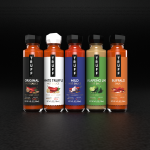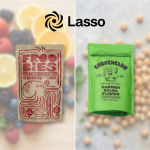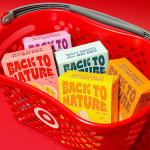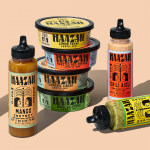A Bite With…Bezi Founder Ilay Karateke
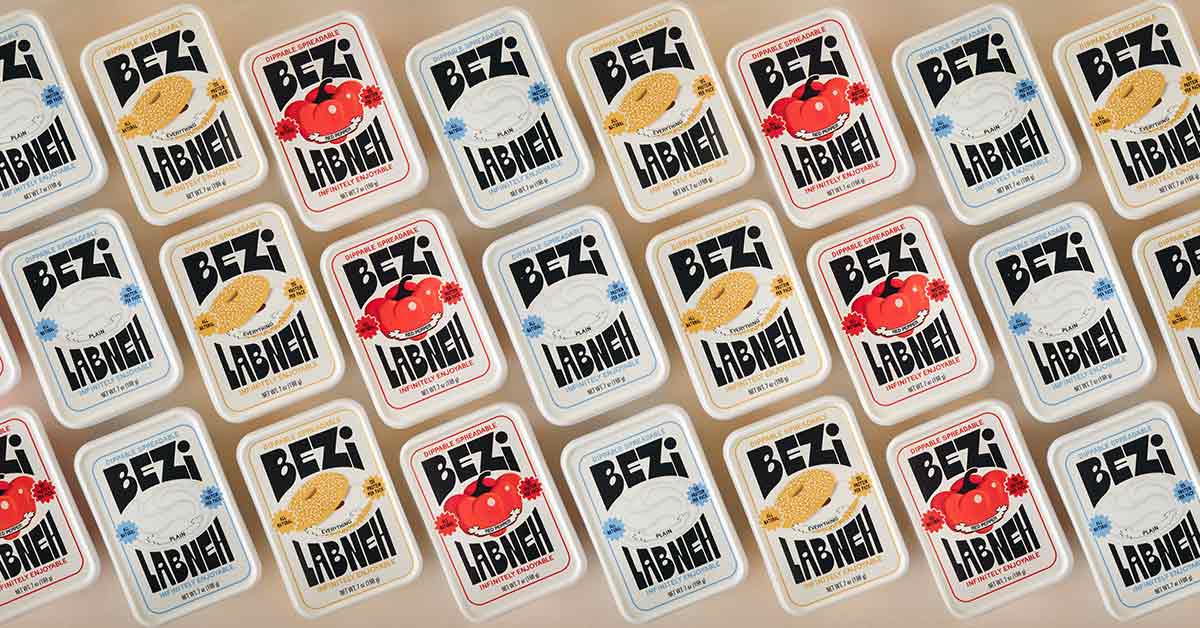
Move over pimento dip! There’s a new spread in town: Labneh is the latest traditional taste to get the next-gen makeover.
Leveraging innovative dairy technology to make a creamier version of the strained yogurt condiment, new labneh brand Bezi aims to compete in the dips and spreads category. First-time founder Ilay Karateke is mixing her Turkish heritage with a background in grocery merchandising to bring three varieties of the refrigerated dip (Plain, Red Pepper and Everything) to market, starting with the New York City area.
Bezi is positioning its labneh as Middle Eastern spreadable cheese that can be an alternative to cream cheese or sour cream. The new brand joins other labneh products like Yaza and dairy-free brand Cocojune in the growing category. Labneh is riding a wave ushered in by hummus, followed by other Mediterranean savory dips like baba ganoush or tzatziki. The U.S. savory spreads and dips category grew 25% in a five-year period ending in 2023, according to a report from consumer insights firm Mintel.
As the brand makes its retail debut this week, Karateke talked with Nosh about how she approached a role as a CPG food entrepreneur, capitalizing on consumer interest in Middle Eastern food, and how there is a lot of trial and error in launching a new product within an emerging category.
How did your past experience lead you to launch a labneh brand?
I joined McKinsey out of college and then got sponsored to come to Columbia Business School [to get an MBA]. They sponsored my education for two years, giving me two years to focus on something I was really passionate about. Food is a love language.
I worked at a farm on the Mediterranean coast of Turkey learning how to milk cows and sheep and make cheese from scratch. While a lot of my friends were doing internships with Goldman Sachs, those MBA-type of internships, I was out there in the Mediterranean, milking cows.
After working for McKinsey you went on to work for Getir in part as a member of the FreshDirect acquisition team. Explain how that job impacted your approach as a founder?.
That experience helped me understand how people buy groceries in New York City. For me it was being able to understand what works, what doesn’t work. It made me understand how people buy groceries. While I was doing merchandising at Getir, we were able to double the market basket size for customers shopping at Getir.
Looking at my background, understanding how cheese is made at a farm level, both the romantic side and the finances, through my experience in business school and then during my career at Getir, combining it all gave me a platform that I could start to think about launching my own business.
What was the opportunity you saw in labneh?
My co-founder comes from one of the biggest cheese making families in Turkey. Before Bezi was Bezi, we worked on it for a year. Not just recipe-testing — which was a big portion — but we had a lot of line tests and trials to see what people were looking for. We did a lot of tasting studies and surveys to see what they were looking for. All of this led us to a dippable cheese product.
I was trying to offer an ethnic food in an Americanized form. Seeing hummus pop up in the U.S. has given hope to a lot of brands like ours. We looked at Google searches for labneh and it actually doubled in the last two years, so we thought there was some momentum.
When you look at dairy, especially dips and spreads, the innovation comes from very delicious versions of existing products. There is less innovation compared to what Poppi is doing for the beverage industry, making a good-for-you soda that resonates with everyone.
We felt like the dips and spreads category doesn’t have that. It has amazing brands. Little Sesame is one of the best hummuses I’ve ever eaten but hummus has been growing for years so you don’t necessarily see it as a new category.
What’s the strategy to getting retailer buyers to take a chance on a new brand?
The secret to my sausage-making is simple. I plan a route of every store I want to hit in a specific area. I go in with sample cups in my cooler backpack, but first I look at their dairy and dip section to see what kind of brands they have. I want to make sure that I understand what the buyers are trying to offer their customers.
There isn’t a lot of labneh so if I was pitching a new beverage that would be a little tough. But being on the ground in the grocery store, there are a million problems and the last thing you need is this one girl with a big smile coming in and trying to feed you labneh. But there are ways to go around that.
Approach it with compassion. There are times when they say come back at 11 and I’m there at 10:59 with a huge smile. It doesn’t happen immediately but if you keep your promises and come there with a positive attitude, that works.
What were some unexpected obstacles you faced after you began the process of launching a CPG food product?
I didn’t realize this would be such a long process. We had to keep pushing the launch back for little things. Like we wanted our packaging logo a little crooked and those things are quite expensive.
Something that I had no idea about is having payments through check and mail. Selling to a lot of the independent local chains in New York City, the payments are done through check and I thought I would just get a wire in the bank after 40 days and that would be fine. That has been another learning that we had.


